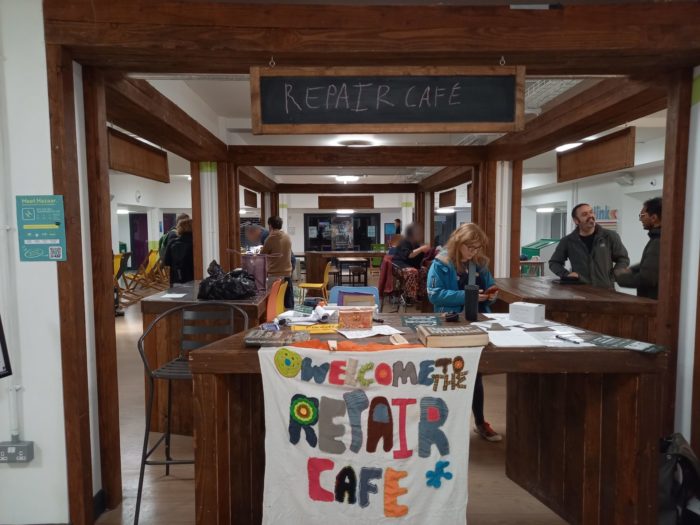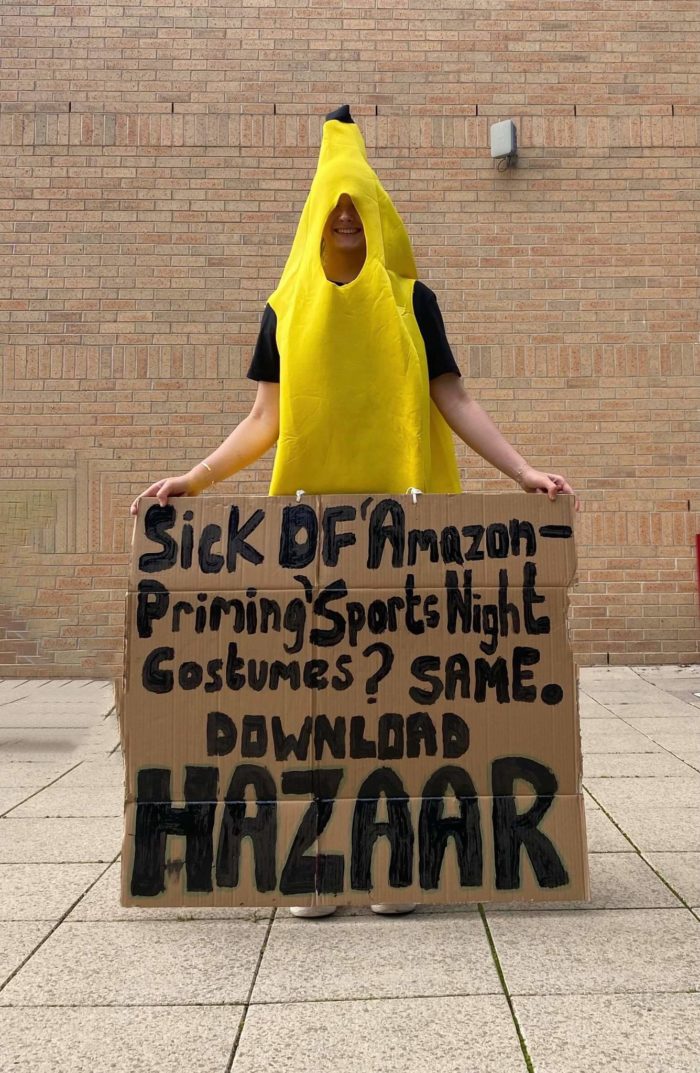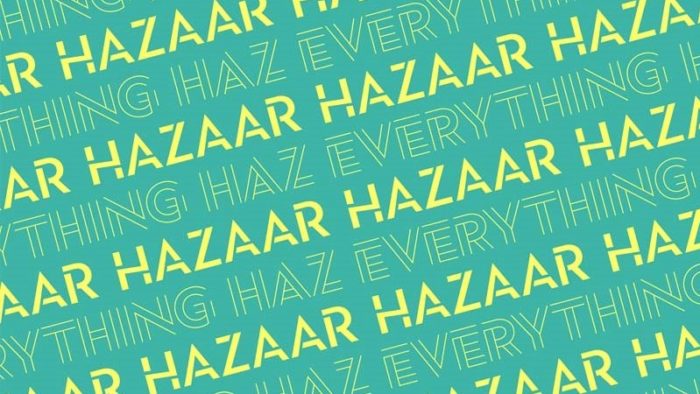Leeds Repair Cafe at the University of Leeds
Sustainability Intern Maya went along to last weekend's Leeds Repair Cafe event at Leeds University Union to see what it involves and to get help fixing some of her own items. Here she tells us about her experience:

On Saturday the University of Leeds, in collaboration with Leeds University Union and the Yorkshire Circular Lab, hosted the Leeds Repair Café. The repair café model is part of a wider organisation called The Restart Project which started in 2013 to tackle unsustainable consumption behaviours and encourage people to fix what they already have.
Walking into the building it was clear the team was already busy; one volunteer was helping to fix a large amplifier, another working on some broken jewellery and a third patching an awkward hole in a cardigan. The ethos of the repair café is not to drop off an item, but to work with the team to gain skills and build confidence fixing your own belongings in the future.
Getting my items repaired
I had brought in two items hoping to get help with; a duffel coat with broken hooks and a pair of cords with a broken hem.
I sat down with a repairer who specialised in sewing and we took a look at my coat. She explained to me that people will often post pictures of their items on the Facebook group beforehand so that fixers can advise on any additional materials people may need to bring with them to the session. Since the Leeds Repair Café lost its permanent home in the Bridge Street Church, it has been travelling across venues. This means they have to minimise the materials they bring with them. Whilst there were some materials we could have used they weren’t quite right, so we decided it would be better to source the right materials for the next repair café. She gave me some useful advice on what I needed to find.
Next we moved on to the cords. This was a much more straightforward fix. The repair café bring a sewing machine to the session which is something most students won't have with them at university. This means that bringing clothes to these sessions is a great way to give them a new lease of life. In this case we decided to hand sew (taking one leg each!) the hems so that the stitching couldn't be seen.
Hazaar marketplace
As we were sewing and chatting we were approached by a representative from Hazaar, a zero-waste marketplace for students designed by students. Some of you might have noticed when one of their representatives donned a banana costumer around the campus last week. They did this to start the conversation about wasteful fancy dress outfits bought for socials, that many students only wear once.

They talked me through their platform which allows students across Leeds to buy and sell unwanted items, meeting on campus instead of posting them. This cuts the emissions and costs associated with sending items and saves 575g of carbon for each transaction. It currently operates as a Facebook marketplace across universities in the UK, and will be released as an app in the next few weeks. You can download Hazaar now by searching on your phone's app store, and by following @justhazaar on Instagram you'll be the first to know when the Leeds marketplace will be launching!
After getting lost in imagining all the amazing costumes I could have had if Hazaar was around when I was a student, I refocussed on finishing to fix my trousers. They looked as good as new when done which was incredibly satisfying - not only had I stopped something going to waste, I also saved myself money on replacements.

Waste and the circular economy
Whilst writing this blog I found out that an estimated £140 million of clothes go to landfill every year in the UK. In 2020 we also had the second highest amount of electronics waste in the world. Shopping second hand is a great way to reduce your consumption, but fixing items (if possible!) is better. The Repair Café is built on circular economy principles; repairing, reusing and sharing items for as long as possible to reduce waste and keep items in use.
Future events
The hope is that further repair events will run at the University and that students will be able to get involved in the running of these. If you are interested in getting involved please email sustainability@leeds.ac.uk.
The next Leeds Repair Café is being held at Headingley Arts and Community Centre (HEART) on Saturday 20th November. I would encourage anyone to bring their broken items - to reduce waste, save money and hassle of buying a new item and to learn valuable new skills.
Here are a few tips to consider before coming to the event:
- If the fix is not straightforward then remember to post on the Facebook page beforehand to get advice on any materials you may need to bring.
- If you cannot attend then fixers may be able to help you through the Facebook page.
- The events are not about someone else fixing your item; you will stay with the fixer and learn valuable skills in how to fix your item.
- The Leeds Repair Café run solely on donations so bring some change if you can!
Keep up to date on the latest news
-
- Follow us on Twitter: @UoL_Sus
- Follow us on Instagram: @uol_sus
- Follow us on Facebook: @UoLSustainability
- Sign up to our Sustainability newsletter
United Nations Sustainable Development Goals
We use the United Nations Sustainable Development Goals (SDGs) as a framework to guide our activity. Our work on being active in Leeds is linked to the following SDGs:
-
-
- Goal 11: Sustainable Cities and Communities
- Goal 2: Responsible Consumption and Production
-
Find out more about our impact on the SDGs.
